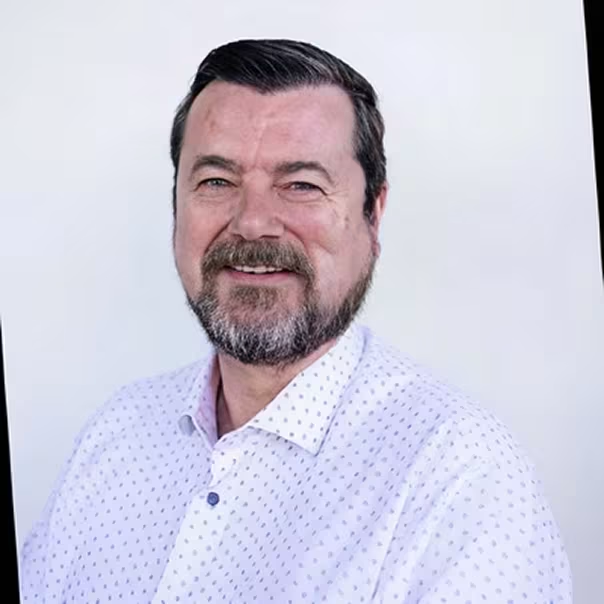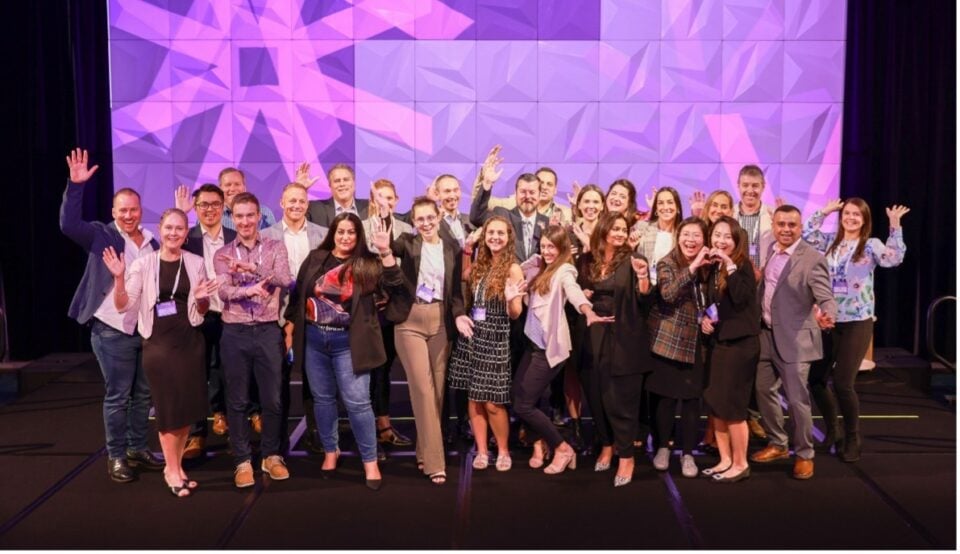The inaugural Momentus Innovation Summit was held at JW Marriott on Australia’s Gold Coast in May 2023. This Summit was part of our Worldwide Innovation Lab initiative and the first in-person event where leading venues and events innovators gathered to discuss the latest trends and share best practices to drive technology innovation.
The two-day event focused on the key themes of innovation, including sustainability, automation, AI, risk management, diversity, equality, and inclusion (DE&I) and more. Our goal was to bring together thought leaders from around the globe who are passionate about driving our industry forward and we were delighted to have attracted more than 160 attendees from Australia, New Zealand, Singapore, South Africa, the United Kingdom, and the United States.
The dynamic program included presentations, panel discussions and collaborative sessions that allowed attendees to learn about the key trends influencing technology and innovation in our industry. The open forum and dialogue enabled attendees to have their say on how we can collectively shape the future of venue and event management. From demographical statistics to first-hand experiences and insights shared by guest speakers and attendees, we gained a deeper understanding of the impact and need for technological innovation to support venues and events worldwide. Below are some of the highlights from the event.
5 Key Highlights from the Inaugural Momentus Innovation Summit
1. Technology and Product Innovation Drives Resilience for Venues
To kickstart the summit, Momentus Technologies’ Chief Executive Officer, Alex Alexandrov, and Chief Innovation Officer, Steve Mackenzie, discussed how technology makes venues more resilient and the function of technology to act as an enabler or a disruptor. During this session, Steve shared examples of how leading venues are introducing cutting-edge technologies such as Amazon’s “Just Walk Out” technology and Winnow’s sustainable commercial food waste solutions to combat the primary challenges impacting our industry including staffing shortages, rising costs and food wastage. Day 2’s opening session was by Momentus Technologies’ Chief Product Officer Ken Surdan, who spoke about product innovation and its critical role in helping to grow and scale successful businesses.
Click here to watch Day 2’s opening session on demand.
2. How Demographics Are Shaping the Future of the Events Industry
Simon Kuestenmacher, Co-Founder of The Demographics Group, gave a keynote presentation and explained the importance of understanding how demographics impact consumers’ expectations of venues and events. Simon shared how the Australian population is growing at record levels and while customers are concerned about rising prices, they continue to prioritize the importance of experiences — which is great news for event and venue managers.
Simon outlined the opportunity for venues and event managers to capitalize on Baby Boomers, who have both time and money to spend attending events, as well as a sense of urgency as they feel cheated out of two good years of their retirement due to the global pandemic. On the contrary, Simon outlined the challenges that venues will face when targeting Millennials who now live further from the city centres and who will need substantial incentives to leave their homes to attend events.
Click here to watch the session on demand.
3. The Importance of Documenting and Executing Event Risk Management Plans
In conversation with Mark Zundans, General Manager at The Gabba for Stadiums Queensland, our Global Vice President Risk, Wayne Middleton, discussed the importance of effective event risk management using real-life examples of power outages during the final minutes of live sporting matches as well as more extreme scenarios, like fatalities due to drownings and motor vehicle accidents. During the session, Mark shared that one of the biggest learnings he took from his involvement in a coronial inquest following a fatality at an event was that venues must not only ensure that they document their risk management processes but, most importantly, they must put all of their documented plans into action when a risk occurs and keep succinct records that can be used as evidence when required.
4. Why Venues Should Prioritize Sustainability
Peter Ward, Managing Director at WeTrack (now part of Momentus Technologies), outlined the differences between Corporate Social Responsibility (CSR), Environmental, Social and Governance (ESG) and Sustainable Development Goals (SDG). According to Peter, CSR is a business model that helps companies maintain socially acceptable practices for the benefit of themselves, their stakeholders and the public, whereas ESG is a set of standards that measure a business’s impact on society and the environment and measure and share their results. Peter explained that the main difference between these concepts is that there are no standardized measurements for CSR, whereas ESG is analyzed using key metrics that are verifiable like the United Nation’s 17 Sustainable Development Goals (SDGs).
During his presentation, Peter highlighted that there are significant opportunities for venues who adopt sustainable practices, including:
- Better brand image and competitive advantage.
- Improved staff recruitment and retention.
- Suitability for tender and contract bids.
- Reduced business costs from reduction in resources.
- Increased productivity.
- Waste reduction.
- Compliance with regulations.
- Increased profit.
Watch a recording of the full session here.
5. How to Successfully Manage Technology Change at Venues
While technology has the power to transform venues and event businesses by increasing efficiency and boosting productivity, the success of any technology implementation is dependent on an effective change management plan. In this session, Missy Ivan, Business Systems Analyst at Gold Coast Convention and Exhibition Centre, and Dana Haycock, Event Coordinator at H3 Group shared their insights and experiences of managing recent technology implementations at their venues. In particular, Missy highlighted the importance of considering the Lippit-Knoster Model for “Managing Complex Change” (diagram below) to ensure a successful implementation.

Learn More from the Momentus Innovation Summit
The feedback received from attendees has been overwhelmingly, with 84% commenting that their experience at the event was good or excellent. This first event will form the basis of our future Summits. If you want to hear more from this Innovation Summit, the keynote address with our Chief Executive Officer, Alex Alexandrov, and Chief Innovation Officer, Steve Mackenzie, is available below.




